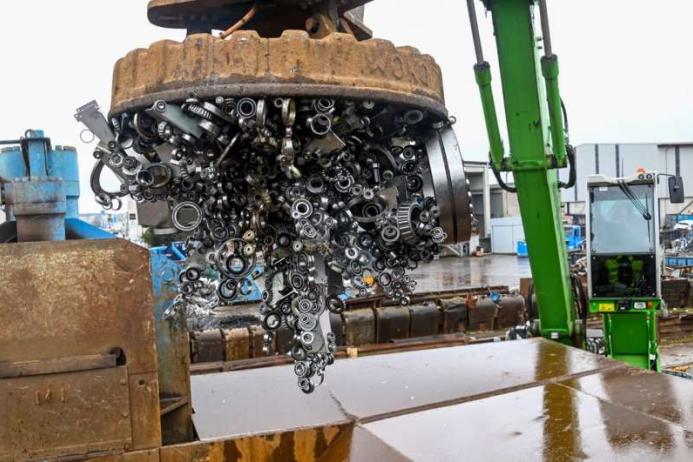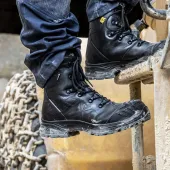Schaeffler take action against product piracy
Ten tonnes of counterfeit bearings destroyed in Germany and fed back into steel recycling loop
GLOBAL automotive and industrial suppliers Schaeffler, who take regular and consistent action against counterfeit products, have now had around 30,000 counterfeit bearings with a total weight of 10 tonnes destroyed at Riwald Recycling Franken GmbH in Schweinfurt-Sennfeld, Germany.
Here, the products are heavily damaged to prevent any further use. The scrap is then compressed and subsequently melted down at a steel mill. In this way, the steel resource is returned to the recycling loop.
‘Counterfeit products are a major safety risk for man and machine,’ said Dr Edgar Duschl, senior-vice president of intellectual property at Schaeffler. ‘Rolling bearings and similar products play a decisive, safety-relevant role in a large number of applications – almost everywhere where there is motion of any kind.
‘A defective bearing can lead to requirements for premature maintenance, machine downtime, and thus enormous costs for the operator – or even result in a sudden total failure or even worse, an accident with personal injuries.’
For Schaeffler, safety aspects are the most important motivation for combatting counterfeit products. ‘Our customers should always be able to rely on the highest quality standards, which Schaeffler have always stood for,’ said Dr Duschl. ‘It is, therefore, important to follow up on any suspicions.
Every case of counterfeiting is always pursued by the Schaeffler Global Brand Protection Team. ‘First, there is the threat of civil claims for cease and desist, damages, and the release of the counterfeits for destruction. Secondly, there is the threat of criminal prosecution, which can lead to a fine or custodial sentence,’ said Dr Duschl.
Counterfeit bearings come from all over the world. If a distributor or customer is offered a suspect product, for example from the brands INA, LuK or FAG, the initial suspicion can be checked directly with the Schaeffler OriginCheck app. In this way, the product code can be scanned using a smartphone and compared with the corresponding Schaeffler product identification numbers. Photos of the suspect products can also be sent to the Brand Protection Team.
In addition, Schaeffler maintain an international network of authorized distributors where customers can be sure they are purchasing original products. These are listed on the Schaeffler website.
‘In our view, it is important to raise awareness of this issue among all participants along the entire value-added chain, including distributors, repair shops, and end customers,’ said Martin Rügemer from the Schaeffler Global Brand Protection Team, who travels around the world to advise distributors and holds training courses.
After being discovered, counterfeit rolling bearings are seized on site. They are kept as evidence until completion of the ongoing proceedings. In many cases, the counterfeit products are subsequently destroyed locally. The counterfeits that have now been destroyed in Schweinfurt mainly originated from investigations in Europe over the past two-and-a-half years.
The damage to German companies caused by product piracy is estimated by the VDMA (German Machinery and Equipment Manufacturers Association) at around €6.4 billion annually.
Schaeffler’s Brand Protection Team can be contacted at any time at: piracy@schaeffler.com










